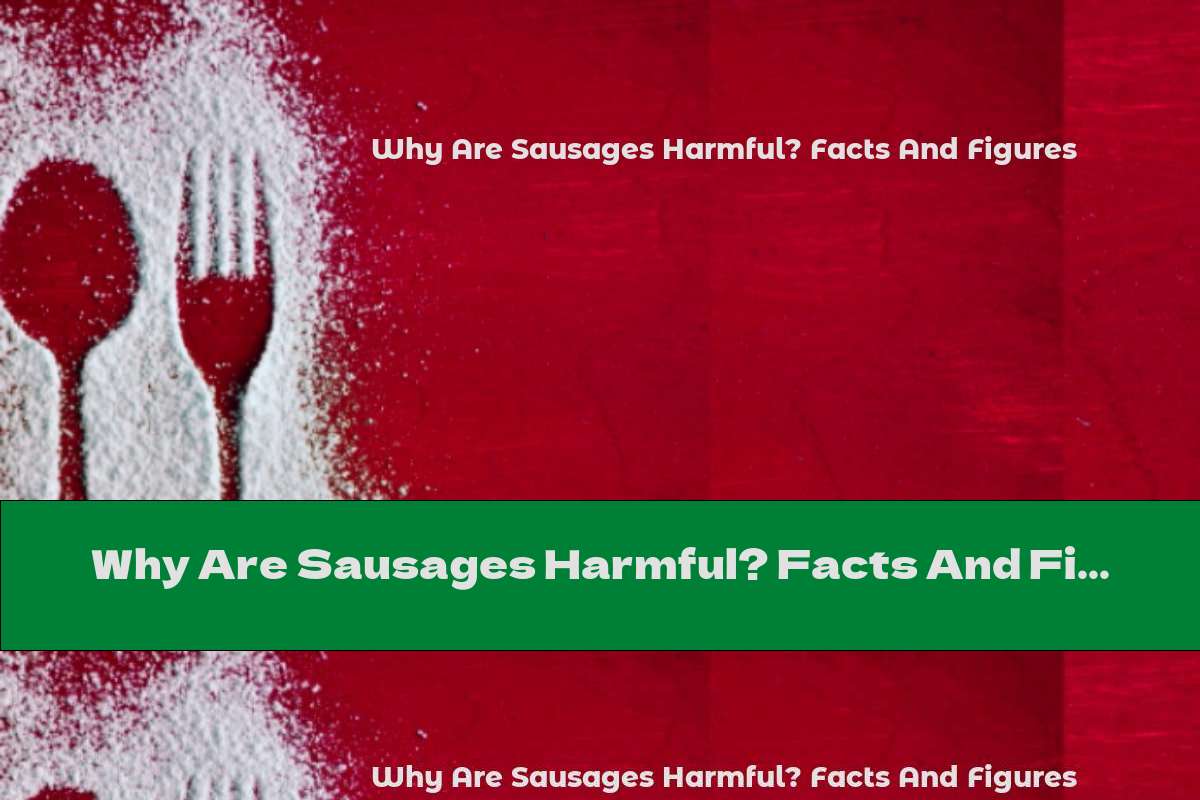Why Are Sausages Harmful? Facts And Figures
 Author: Mark Velov
Time for reading: ~2
minutes
Last Updated:
February 12, 2026
Author: Mark Velov
Time for reading: ~2
minutes
Last Updated:
February 12, 2026

CHAPTERS (Table Of Contents)
The latest research shows that every 50 grams of processed meat a day increases the risk of colon cancer by 18%!
This meat is considered to be processed, in which different types of chemicals are used for hardening, drying, salting, coloring and canning. These are all sausages, bacon, ham, smoked meats, sausages, pastrami and canned food. It is no coincidence that experts have found a strong link between this type of food and the development of cardiovascular disease, diabetes and malignancies .
Except for the important fact that we close our eyes to for convenience - that sausages contain countless other substances and less meat, their harmful effects on the body come from several extremely dangerous ingredients for each of us.
In the first place, these are nitrates that have entered the body, converted into nitrites, N-nitroso compounds and nitrosamines . These are highly carcinogenic substances, but the food industry cannot give them up for three reasons: they keep the fresh pink color of the meat for a much longer time, improve its aroma and inhibit the development of bacteria that spoil the meat, reducing the risk of food poisoning.
The other enemy of health is the polycyclic aromatic hydrocarbons (PAHs) used in the preparation of dried meat, as well as heterocyclic amines (HCAs ) - a class of compounds released during the heat treatment of sausages and fish.
Experts from all over the world are adamant that these three ingredients have a serious contribution to the development of cancer of the stomach and colon.
Last but not least, scientists warn of the "good old salt" used to preserve and improve the taste of meat products for centuries. The high concentration of sodium chloride in the daily menu has repeatedly proven its connection with hypertension and cardiovascular disease.
Salt can also increase the growth of the bacterium Helicobacter Pylori , which causes stomach ulcers - also a risk factor for stomach cancer.
The World Health Organization classifies processed meat as one of the killers of modern humanity, along with smoking, alcohol, sitting and exposure to high levels of arsenic or asbestos in the air.
The International Agency for Research on Cancer, which works for the WHO, has conducted large-scale studies that have shown that eating processed meat, even in small quantities, increases the risk of developing the deadly disease.
The latest research shows that every 50 grams of processed and red meat a day increases the risk of colon cancer by 18% ! Of course, whether the disease will occur depends on other factors - overall health culture, physical activity and genes.
However, nearly 34,000 deaths worldwide each year are due to a diet rich in processed meat, experts say.
According to them, in no case should not take more than 500 grams per week of this type of food.
Oncological diseases in our country
Colon cancer is the third most common in men and second in women in Bulgaria. It represents 8.6% of all malignancies in both sexes.
About 3,000 people fall ill each year, nearly two-thirds of whom rest within a few months.
Trends in standardized morbidity and mortality rates show an increase in both sexes in 2014, more pronounced in men. The incidence increases annually by 4.1% for men and 3% for women. Mortality also rose by 3%.
The age-specific incidence of colorectal cancer increases sharply after 40 years and reaches its peak after 75 years of age in our country.
Stomach cancer is the sixth most common cancer in men and the eighth most common in women. It represents 4.8% of all malignancies in total for both sexes. Annually, more than 1,500 Bulgarians hear the terrible diagnosis, according to data from the National Cancer Registry.
Related Articles
- The Ultimate Guide to 100g Beef Protein: Nutrition Facts, Recipes & More
- Michelob Ultra Calories: A Guide to Nutrition Facts, Diets, and Recipes
- The Ultimate Guide to Panera Country Bread Ingredients | Nutrition Facts
- The Role of E621 in Sausages: Usage, Health Considerations, and Alternatives
- Understanding E621 in Meat for Sausages: Effects, Nutrition, and Alternatives